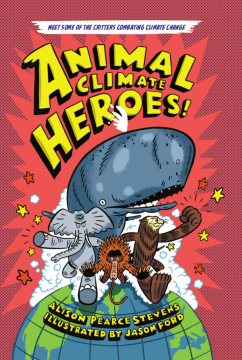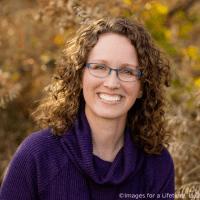I’m delighted to be highlighting some awesome middle grade STEM/STEAM authors on the blog!
The first up is Alison Pearce Stevens. Her new book, Animal Climate Heroes released March 5th. I’ve read the book and it is PERFECT for curious kids.
Here’s a bit more info:
Animal Climate Heroes by Alison Pearce Stevens (Author), Jason Ford (Illustrator)
Godwin Books, March 5, 2024. BUY it HERE
Summary: In our left corner we have the meanest villain that’s ever existed. Responsible for rising seas and loss of biodiversity, it’s climate change ready to wreak havoc on the Earth. But in our right corner? We have four superheroes ready to save the day!
Forest elephants protect our forests by trampling trees.
Whales boost ocean health with their massive poo-nados.
Sea otters defend kelp forests from purple invaders.
And echidnas bury tons of soil to stop climate change.
But we can’t leave them in this fight alone. We need to protect our heroes who, in return, defend our planet. Get ready to learn all about these four legged, and two-flippered, creatures and how YOU can be a climate hero too!
Reviews:
“Along with explaining sometimes complex ecological cycles and patterns in easy-to-understand terms, the author highlights the role of microbes in decomposition, extolling the benefits of composting and leaving autumn leaves on the ground; she even describes the eco-devastation wrought by artificial lawn fertilizers and free-roaming cats. Ford’s engagingly informal ink-and-wash portraits and diagrams generally come with helpful captions and labels.”―Booklist
“Animal Climate Heroes is a captivating exploration of the Earth’s unsung champions in the battle against climate change. In this riveting narrative, author Alison Pearce Stevens introduces readers to four remarkable creatures who stand as mighty defenders of our planet’s delicate ecosystems. Each chapter is masterfully woven together through scientific insight with engaging storytelling, making complex ecological concepts accessible and intriguing for young readers. Not only will readers walk away informed, but they will also be inspired to take action to help safeguard our planet! Animal Climate Heroes truly promises to be an indispensable resource for curious minds eager to make a difference in the world outside their doorstep.”― Melissa Cristina Marquez, author of Mother of Sharks and Wild Survival
“Fun and fascinating! Animal Climate Heroes gives readers an inspiring look at what earth’s creatures are doing to help fight climate change, but also gives us a compelling reminder of just how amazing our planet really is―and why we ought to protect it. This book belongs on every animal lover’s shelf!”―Jess Keating, bestselling author, scientist, & nature artist
Alison, thanks for answering a few questions about your book and your writing.
JAS: This is such an intriguing way to approach climate change, how did you come up with it?
APS: During the Covid shutdown, I watched a lot of webinars, and during one of them, the presenter said that her favorite fact was that sea otters help fight climate change. I had also seen an article about the role of great whales in climate, and I knew it was a great angle for a book.
JAS: Can you give us a short explanation of how you relate climate change to animals?
APS: The key is to remove the carbon dioxide from the atmosphere. Animals don’t do this! But many animals, including the four featured in the book, help boost photosynthesis in trees, plants, and algae. (For anyone who hasn’t thought about photosynthesis in years, plants use the process to combine carbon dioxide and water to make food.) Exactly how the animals boost photosynthesis in their local plants or algae varies by animal and ecosystem, and the book goes into more detail about each one. The gist of it is that these animals are helping photosynthesizers get what they need to grow, whether that’s nutrients, space, or water, and that helps remove carbon dioxide from the atmosphere.
JAS: Can you give us a sneak peek of one or two of the animals that you highlight?
APS: Absolutely. Sea otters are helping to protect kelp forests. Kelp can literally grow up to two feet a day, and it sucks lots of carbon dioxide out of the atmosphere to make that happen. Forest elephants tend their forest like gardeners, planting seeds, dropping plenty of fertilizer, and pulling weedy trees. This reduces competition for the massive tree species, so they get enough water and nutrients to flourish. The bigger the tree, the more carbon it stores. Elephants are absolutely essential to maintaining tropical forests in Africa.
JAS: What do you want young readers to get out of your book?
APS: Two things: I want every reader to understand how incredibly important nature is to us. It’s not just about climate (even though that’s all we hear about in the news), it’s about protecting all kinds of natural systems. We need them as much as they need us. And I want everyone to feel empowered to take steps to reduce their impact on the planet. Yes, industries play a huge role in this, but each and every one of us can reduce our personal impact, as well. By taking some of the steps I recommend in the book, people can tread more lightly on Earth and help sway industries to make more sustainable decisions.
JAS: Can you list a few actions that everyone can take to reduce climate change?
APS: Ride a bike instead of driving—or at least turn off the engine instead of idling. Rethink your lawn care practices if you own a home or talk to your landlord about how the property is maintained if you rent and there are green spaces. Most fertilizers are products of the oil industry and applied excessively; they wash downstream along with herbicides and other pesticides. When they reach the ocean, they harm marine life (and there’s good evidence they’re harming us, too). Lawnmowers and leaf blowers release huge amounts of carbon dioxide and other pollutants, so making changes to lawn care practices can go a long way. Even replacing a showerhead with one that’s EPA Water Sense certified can cut your carbon footprint and reduce the amount of water you use. All of those changes save you money, to boot.
JAS: Do you have any tips for writers who want to break into nonfiction children’s books?
APS: Be persistent and work on your craft—attend conferences, workshops and webinars to really learn how successful authors create their stories. And get to know other people in the kidlit community. It’s incredibly supportive, and many of my writing opportunities arose from events I attended and the connections I made while I was there.
JAS: What are you working on now?
APS: I am planning a second research trip for THE WILD MILE. This MG NF will be part of Holiday House’s Books for a Better Earth collection. It features efforts to rewild cities—to re-create lost habitat in an effort to bring wildlife back into the concrete jungle. THE WILD MILE will look at these efforts in general and specifically highlight the Wild Mile project in downtown Chicago.
Thanks so much for joining us, Alison. You can learn more about Alison below.
Bio: Alison Pearce Stevens has been chased by a trumpeter swan, bitten by a bronze-winged duck, and served as a climbing wall for geckos and baby bats. She used to be a beekeeper and still thinks pollinators are some of the coolest things on the planet. Once upon a time, she was Dr. Stevens, science professor, until life took her overseas, at which point she started writing about science and nature for kids, because she’s an educator at heart and had to find new ways to share cool things with the world’s most curious people.
Alison writes lots of fun nonfiction: articles, picture books, and middle grade books. All of her work is inspired by a love of science and nature. She a regular contributor to Science News Explores, Highlights for Children, ASK, and other kids’ magazines, and has co-authored four books for National Geographic Kids. Rhinos in Nebraska: The Amazing Discovery of the Ashfall Fossil Beds (2021) and Animal Climate Heroes! (2024) were both Junior Library Guild Gold Standard Selections. Rhinos also won three Nebraska Book Awards. Detective Dogs are on the Case will release in September 2024.




